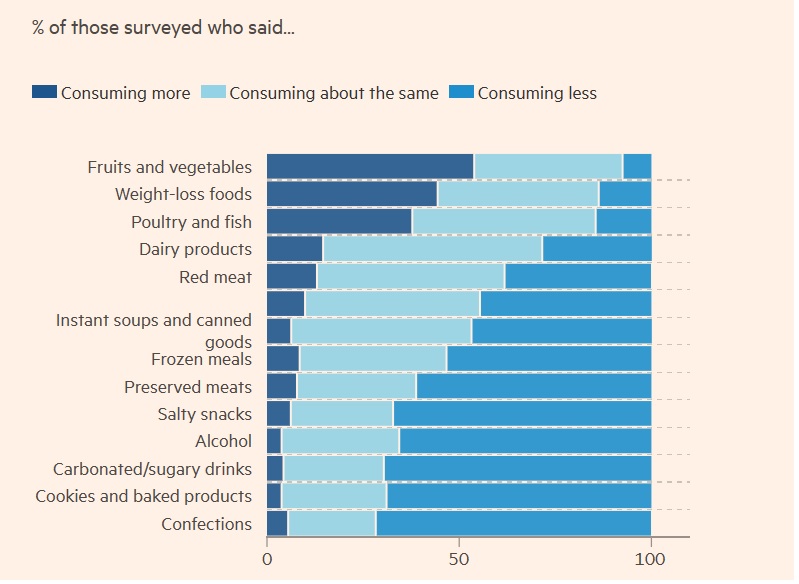Will the new anti-hunger drugs put the US snack industry in crisis?

A new generation of anti-hunger drugs has recently entered the market, whose success in the USA, the country of the obese, has been extraordinary.
Analysts have warned that the extraordinary growth prospects of drugs such as Wegovy and Novo Nordisk's Ozempic , prescribed for diabetes but commonly used for weight loss, are such that they could hit sales of packaged foods and drinks because they change profoundly the relationship that people have with food.
Among other things, Eli Lilly's Mounjaro will soon join these drugs, but we are certain that other pharmaceutical companies will jump on the bandwagon, economic ones for now, with unexpected effects on the food industry.
Last week, Walmart CEO John Furner said that customer data, which compares people's prescription history with their food spending patterns, suggests that those taking the obesity drugs they buy less food.
“We definitely see a slight change compared to the total population – we see a slight decline in the overall basket,” he said.
His comments led to a modest sell-off in consumer stocks, with shares of Mondelez and PepsiCo losing 7 and 5 percent, respectively, in the following days. Companies such as PepsiCo and Kellanova, maker of Pringles, have insisted it is too early to see an impact.
“So far the impact on our business is negligible,” said Ramon Laguarta, PepsiCo's chief executive.
Chief financial officer Hugh Johnston told the Financial Times: “The uptake of these [drugs] is likely to be quite slow… they are obviously quite expensive and they are injectable medicines.” However, it is only a matter of time before industries develop solutions that are less invasive than injections.
According to a Morgan Stanley analysis, the number of patients taking these drugs is expected to nearly quintuple to 24 million people, or 7% of the US population, by 2035. Patients taking them could reduce their calorie intake daily by 20-30%, they added. And above all, as the FT survey below indicates, their consumption would change
According to the US Centers for Disease Control and Prevention, about 42% of the US adult population is obese and therefore could benefit from the drug. But their access will depend on how many health insurance companies decide to cover it. The speed of adoption will also depend on increased supply from Novo Nordisk, which has faced huge and unexpected demand.
So far, Wegovy has only launched in the US and a handful of European markets, including the UK and Denmark, where supplies are still limited.
Evan Seigerman, an analyst at Canadian investment bank BMO, predicts that the entire weight-loss and diabetes drug market will be worth between $130 billion and $140 billion.
So far, no significant studies have been conducted showing whether or not drugs change appetite for certain foods. However, doctors and analysts have found that patients are more likely to reduce foods high in sugar and fat, such as baked goods, sweets, sugary drinks and alcohol. A boon for US eating habits, but a disgrace for those who produce this type of product. The spread of their consumption could reduce the turnover of these companies, initially by tiny percentages. However, over time, with the release of less expensive and easier to use versions, the drop in consumption could be greater, to the point of being felt on profits.
A bitter future for sugary snack manufacturers?

Thanks to our Telegram channel you can stay updated on the publication of new Economic Scenarios articles.
The article Will the new anti-hunger drugs put the US snack industry in crisis? comes from Economic Scenarios .
This is a machine translation of a post published on Scenari Economici at the URL https://scenarieconomici.it/i-nuovi-farmaci-anti-fame-metteranno-in-crisi-lindustria-deglisnack-usa/ on Mon, 16 Oct 2023 09:00:19 +0000.

